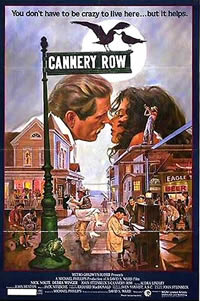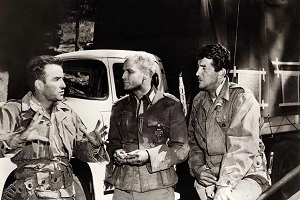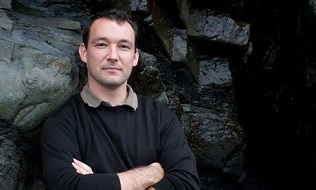De Amerikaanse schrijver John Steinbeck werd geboren in Salinas, Californië, op 27 februari 1902. Zie ook alle tags voor John Steinbeck op dit blog.
Uit: Cannery Row
“On the black earth on which the ice plants bloomed, hundreds of black stink bugs crawled. And many of them stuck their tails up in the air. “Look at all them stink bugs,” Hazel remarked, grateful to the bugs for being there.
“They’re interesting,” said Doc.
“Well, what they got their asses up in the air for?”
Doc rolled up his wool socks and put them in the rubber boots and from his pocket he brought out dry socks and a pair of thin moccasins. “I don’t know why,” he said. “I looked them up recently–they’re very common animals and one of the commonest things they do is put their tails up in the air. And in all the books there isn’t one mention of the fact that they put their tails up in the air or why.”
Hazel turned one of the stink bugs over with the toe of his wet tennis shoe and the shining black beetle strove madly with floundering legs to get upright again. “Well, why do you think they do it?”
“I think they’re praying,” said Doc.
“What!” Hazel was shocked.
“The remarkable thing,” said Doc, “isn’t that they put their tails up in the air–the really incredibly remarkable thing is that we find it remarkable. We can only use ourselves as yardsticks. If we did something as inexplicable and strange we’d probably be praying–so maybe they’re praying.”
“Let’s get the hell out of here,” said Hazel.”
(…)
“Hazel used his trick. “They got no starfish there?”
“They got no ocean there” said Doc.
“Oh!” said Hazel and he cast frantically about for a peg to hang a new question on. He hated to have a conversation die out like this. He wasn’t quick enough. While he was looking for a question Doc asked one. Hazel hated that, it meant casting about in his mind for an answer and casting about in Hazel’s mind was like wandering alone in a deserted museum. Hazel’s mind was choked with uncataloged exhibits. …”

John Steinbeck (27 februari 1902 – 20 december 1968)
Affiche voor de film “Cannary Row” uit 1982


